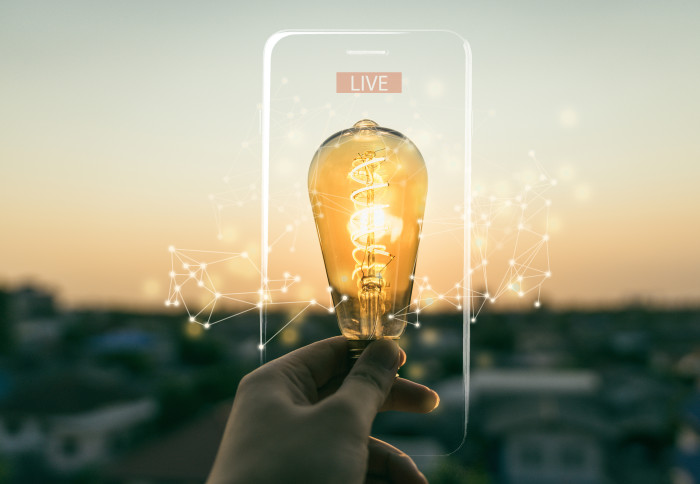Nov 16 2020
The use of smart devices such as smart speakers, smartphones, and wearable health and wellness sensors in offices, homes, and public buildings has been increasing.

Researchers have developed environmentally friendly materials that could harvest enough energy from indoor light to power wireless smart devices. Image Credit: Imperial College London.
But the batteries they run on can exhaust fast and include hazardous and rare environmentally harmful chemicals. Therefore, scientists are in the search of improved methods to power the devices.
One of the methods to power them is by transforming indoor light from usual bulbs into energy, in a way similar to how solar panels harness energy from sunlight, called solar photovoltaics. But since light sources exhibit different properties, the materials used to produce solar panels are not appropriate for harvesting indoor light.
Scientists from Imperial College London, Soochow University in China, and the University of Cambridge have now identified that new green materials developed for next-generation solar panels could be beneficial for indoor light harvesting. The study results were recently published in the Advanced Energy Materials journal.
By efficiently absorbing the light coming from lamps commonly found in homes and buildings, the materials can turn light into electricity with an efficiency already in the range of commercial technologies. We have also already identified several possible improvements, which would allow these materials to surpass the performance of current indoor photovoltaic technologies in the near future."
Dr Robert Hoye, Study Co-Author, Department of Materials, Imperial College London
The researchers examined the so-called “perovskite-inspired materials,” which were made to avoid issues with materials known as perovskites designed for next-generation solar cells. Perovskites are more cost-efficient to prepare compared to conventional silicon-based solar panels and offer similar efficiency, but they comprise harmful lead substances.
This pushed the growth of perovskite-inspired materials, which are rather based on safer elements such as antimony and bismuth. Although these perovskite-inspired materials are more eco-friendly, they are not as effective at absorbing sunlight.
But the researchers identified that the materials are highly effective at absorbing indoor light, with efficiencies that are encouraging for commercial applications. Most importantly, the team showed that the power offered by such materials under indoor illumination is already enough to make electronic circuits function.
Our discovery opens up a whole new direction in the search for green, easy-to-make materials to sustainably power our smart devices."
Vincenzo Pecunia, Study Co-Author and Professor, Soochow University
Pecunia added, “In addition to their eco-friendly nature, these materials could potentially be processed onto unconventional substrates such as plastics and fabric, which are incompatible with conventional technologies. Therefore, lead-free perovskite-inspired materials could soon enable battery-free devices for wearables, healthcare monitoring, smart homes, and smart cities.”
This study was financially supported by EPSRC and the National Natural Science Foundation of China.
Journal Reference:
Peng, Y., et al. (2020) Lead-Free Perovskite-Inspired Absorbers for Indoor Photovoltaics. Advanced Energy Materials. doi.org/10.1002/aenm.202002761.